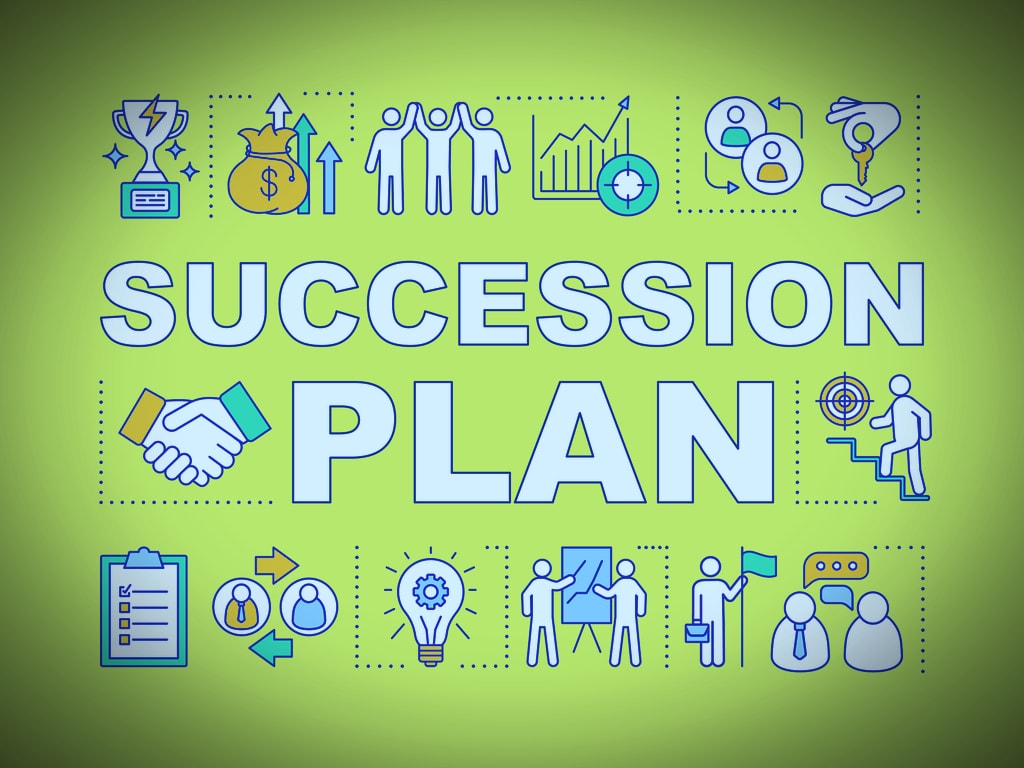There comes a moment when contemplating life after death is prudent. Not necessarily philosophically or theologically, but logistically. We all have actual and intangible assets associated with our names, such as a bank account, a boat, a home, an investment property, or a business. These things cannot accompany us to the tomb.
One of the key goals of an estate plan is to arrange for these items to be sold and/or dispersed after death. But what about the company? This is where a succession plan comes in.
If you operate a business, you should be aware that australian financial advisor and succession planning are inextricably linked and must frequently be integrated, as espoused by a financial advisor. For example, if you decide to sell the business as part of your succession plan, the profits of the sale (or the purchase of your shares in the company) will go toward your estate plan.
A properly prepared estate plan written without regard for the sale of the company may lose its estate tax-free status. That is only one example. Succession planning and estate planning are two sides of the same coin for business owners, and both are equally vital. Let’s take a closer look at each.
Related: Can a Financial Advisor Help with My Debts?
Defining an Estate Plan
An estate plan is a collection of documents that outline what should be done with your estate or your earthly possessions. An estate is anything possessed and left behind after death, from artistic revenues and royalties to financial instruments such as bonds and stocks, bank accounts, life insurance payouts, retirement account remainders, properties, and possessions.
There’s more to making an estate plan than just writing on a piece of paper that everything should be sold and split equally between your spouse and children. Aside from legally legitimizing a document such as a will with signatures, witnesses, and a notary, some sections of the estate are allocated differently than others.

A life insurance payout can be made out to a specific beneficiary and paid out promptly after death, avoiding probate and other will-related red tapes. Through the services of a professional trustee or financial advisor, an estate can be structured to create and manage a family legacy for future generations rather than a one-time payout. Then there are the issues of life and death, such as how to manage financial and healthcare decisions when paralysed.
Estate plans should try to provide answers to questions like:
- What goes where; What will happen to the estate?
- How will you approach predicted rivalries and family disagreements in your estate plan?
- When determining who gets what, how do you justify and explain your decision-making process?
- Will the estate be dispersed in an equitable manner?
- Who will be appointed as guardian of your minor children?
- What will become of your debts? What impact will your creditors have on your estate plan?
- What percentages of the estate will be divided through the will? Through trust? Through beneficiary designation?
- Who will handle any significant financial commitments while you are alive but incapacitated?
- Who will make medical decisions for you if you are alive but incapacitated?
- How can you utilize your estate planning to pull your family closer together rather than apart?
Defining a Succession Plan
A succession plan defines who takes over the helm when the captain is forced to leave the ship. Some succession plans avoid designating a new CEO by instead offering guidelines for the transition time between your departure and someone else taking over.
Unlike estate plans, which normally take effect upon your death, succession plans are not always tied to your death. They are especially important when planning for retirement, transitioning to a new era of your life (such as a public office), or just leaving the company to take up a different job elsewhere, such as being part of a partnership in a new and exciting business venture.
Succession planning should try to provide answers to questions such as:
- How will the leadership changeover be handled?
- Who will take over once you leave?
- Will there be any management changes?
- Will there be any more personnel changes?
- Who else is accompanying you?
- Will the company’s mission and vision alter, or will there be future plans?
- Is the company instead going to be sold, and if so, to whom?
- Will the business continue to run as intended if it is sold, or will there be cutbacks?
- Will the company be dismantled? Will employees and executives keep their jobs?
- What are the tax ramifications for your estate as the company’s owner if it is sold?
- How will you modify your estate plan to account for the increased wealth as a consequence of the sale?

Comparing Estate and Succession Plans
Every part of your estate must be considered in an estate strategy. That implies your estate plan is as huge and complex as your estate itself.
To account for incapacity, you might manage all of your affairs in a single will and form a basic power of attorney.
Alternatively, you may require an estate plan that includes trusts to decrease tax burden, protect assets from creditors, and account for overseas holdings. Some of the more common components of an estate plan are:
- Will and Testament
- A living trust.
- A durable power of attorney.
- Advanced directive.
Estate plans are more formal than succession plans. While an estate plan necessitates notarized paperwork and precise legal wording, a succession plan may be an internal document kept secure by the company’s vice president or another member of management or a collection of documents maintained in a folder in your office and mentioned in a will. Some things you would wish to accomplish in advance of a succession plan include:
- Developing the next generation of leaders.
- Create a step-by-step action plan for management when you go.
- Investigating potential buyers for sale.
- Identifying who in the family is most prepared to run a family business.
- Consult a tax expert, an attorney, or a financial advisor about the tax consequences of a sale as well as your death/incapacity.
- Choosing how to share the earnings of the sale after your death.
Planning is Paramount
If you own a business, you must accept responsibility for preparing for the unexpected end of your leadership. Even if you do not want to retire soon, you should plan for premature death and incapacity. What if you don’t show up to work tomorrow? What should be done, and who is in charge?
It might be tough and terrifying to consider life after your own death. But it’s also necessary to consider the sadness and stress that can be avoided with a little forethought. Discuss estate and succession planning with your financial advisor right away. Omura Wealth Advisers provide the best financial advisors at a very affordable rate. At Omura, you’ll get an Australian financial advisor in Sydney to help out with your estate and succession plan.
